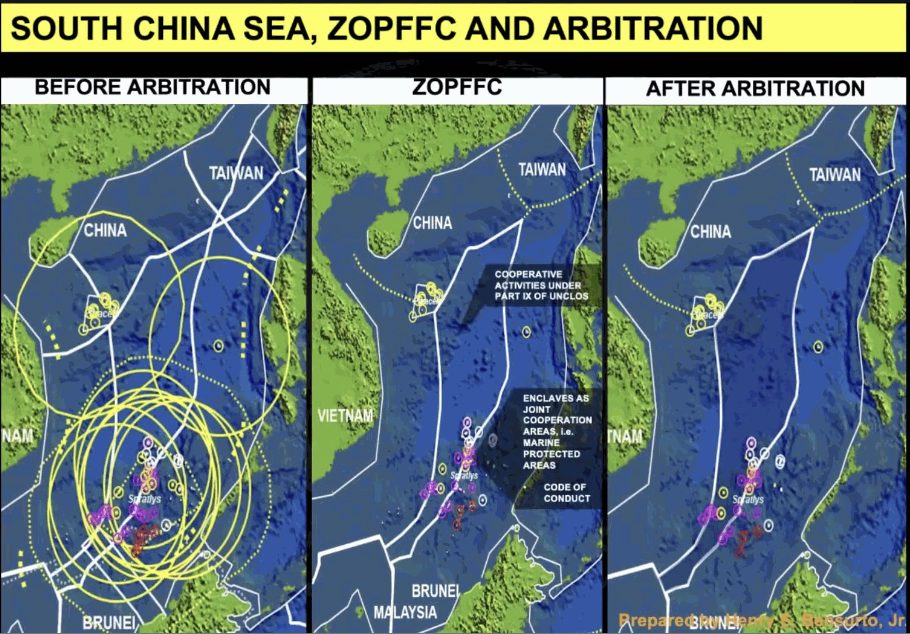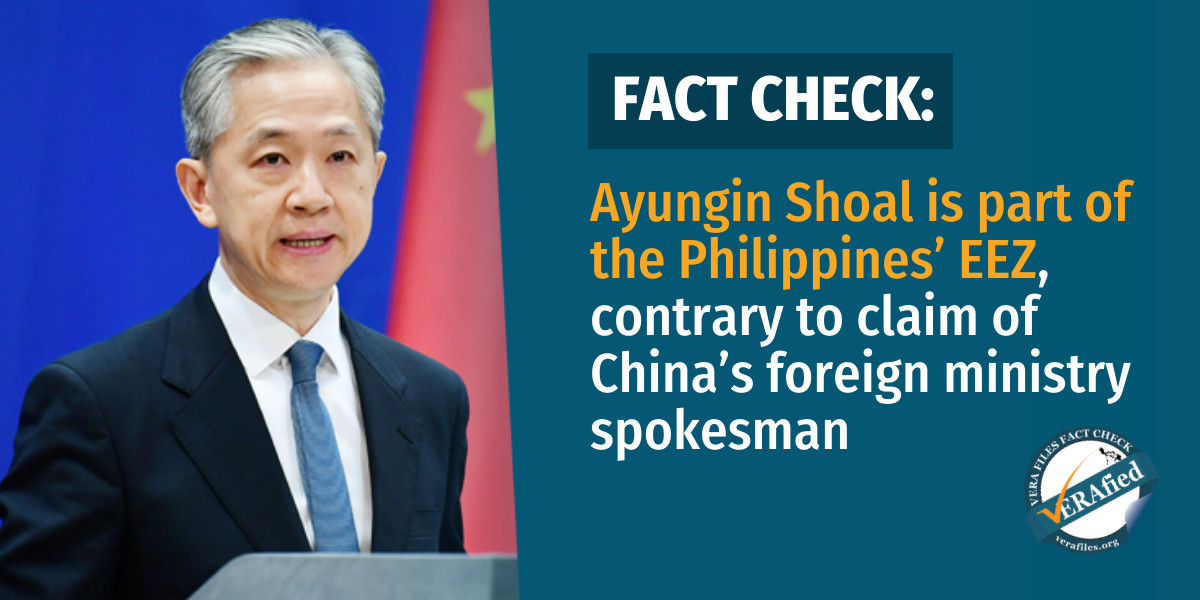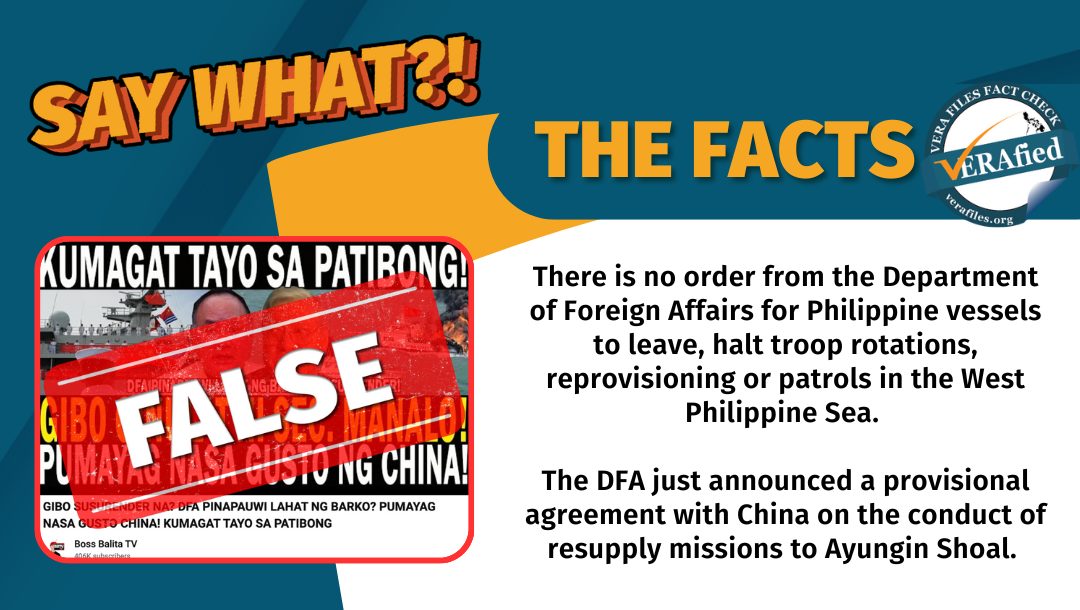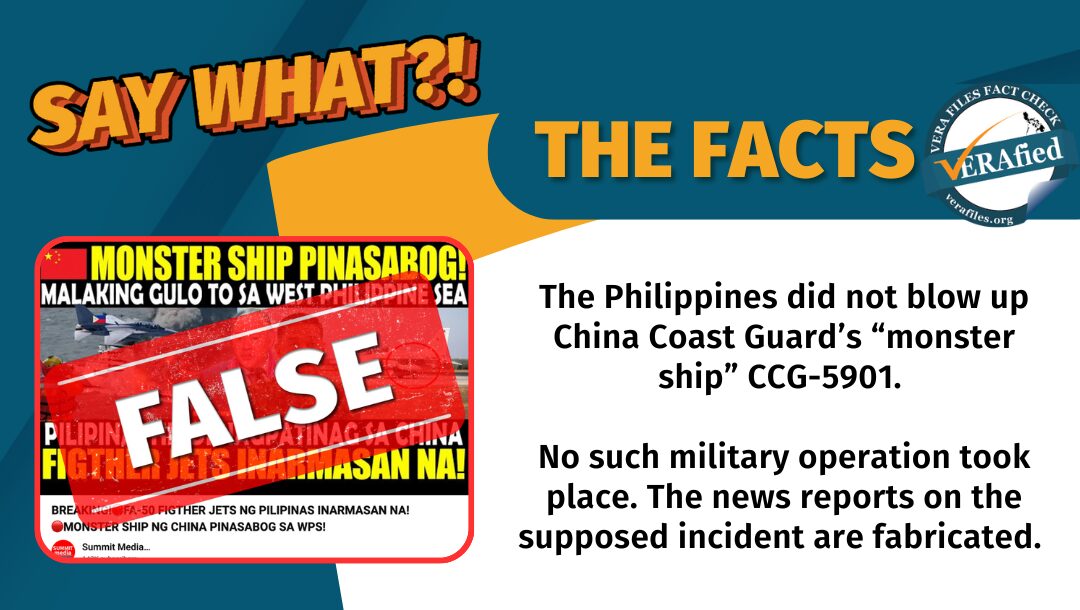Unlike the claim of China and former president Rodrigo Duterte, the 2016 arbitral ruling on the South China Sea is not “just a piece of paper.” The unprecedented victory enabled the Philippines to regain approximately 540,000 square kilometers of maritime entitlements.
“Beneficial ‘yung nangyari sa arbitration kasi malaki ang nakuha natin [and] very clear kung ano ang EEZ [Exclusive Economic Zone] natin, atin lang talaga ‘yun, exclusive at hindi na disputed area,” Philippine Ambassador to Türkiye Henry Bensurto Jr. told VERA Files senior editor Tress Martelino-Reyes in the Tres from Tress podcast on July 10.

Bensurto, an expert on the United Nations Convention on the Law of the Sea (UNCLOS) which provides a legal framework for all maritime-related activities, was a key player in the Philippine team that filed the arbitration case against China regarding the West Philippine Sea.
On July 12, 2016, the arbitral tribunal of the Permanent Court of Arbitration (PCA) based in The Hague ruled in favor of the Philippines.
Prior to the arbitration ruling, nearly the entire West Philippine Sea, encompassing approximately 550,000 square kilometers of the country’s EEZ and continental shelf, were under dispute, according to the seasoned diplomat.
The overlapping claims primarily centered around China’s controversial nine-dash line and the “ambiguity” of the character of the maritime features, which would determine if they are entitled to 200 or only 12 nautical miles of territorial sea based on UNCLOS.
The Philippine delegation to the PCA argued that maritime features in the Spratly Group of Islands are not islands, but rocks.
Gains of arbitral award
Voting 14.5 – 0, the PCA ruled that China’s claim has no legal foundation and that all of the maritime features in the Spratly Group of Islands are rocks and low-tide elevations that are entitled to no more than 12 nautical miles.
“After the arbitration, the only remaining disputed area is 13,000 square kilometers, therefore we have regained about 540,000 of our EEZ and another 540,000 of our continental shelf,” Bensurto said, citing the gains made by the Philippines from the ruling.
The arbitral award unequivocally affirms Philippine sovereign rights over critical areas such as Reed Bank and Ayungin Shoal, which are now recognized as non-disputed and completely within Philippine jurisdiction.

After arbitration the only remaining areas under dispute is 13,000 square kilometers, Bensurto said.
“Ibig sabihin ‘yung mga mangigisda natin should be able now to fish freely without intimidation, harassment from any country because ‘yung right na ‘yan, it is a right that is exclusively vested to our fishermen,” said Bensurto.
However, China continues to defy the arbitral ruling, trampling on the country’s maritime rights and threatening the livelihood of fishermen within the West Philippine Sea.
On June 17, China Coast Guard personnel rammed the boat of the Philippine Navy during a rotation and resupply mission to Ayungin Shoal.
The incident resulted in minor injuries to several Filipino Navy soldiers, including one who lost his thumb after it got caught between Philippine and Chinese boats.
(The author is a journalism student at the UP College of Mass Communication and is doing her internship with VERA Files.)





